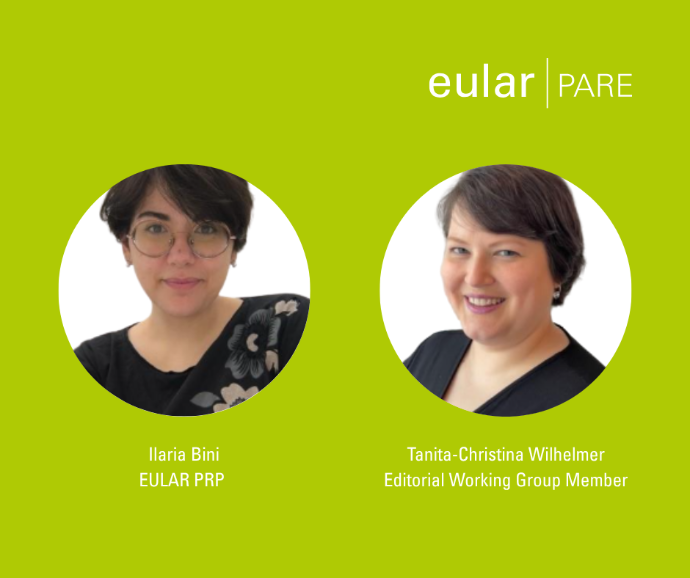PARE Interviews
Empowering Transitions: A Patient Research Partner’s Perspective on EULAR’s Guide to Physical Activity and Pain Self-Management
Tanita-Christina Wilhelmer, member of the Editorial Working Group, interviews Ilaria Bini, a Patient Research Partner from Italy, to get her insights of this project.
Tanita: What motivated you to become a Patient Research Partner in this project on transitional care?
Ilaria: The transition period is a highly sensitive time when young people move from childhood to adulthood. During this phase, they face numerous challenges, which can be overwhelming to manage. For individuals with rheumatic and musculoskeletal diseases (RMDs), this transition is particularly complex. This is why these young people require support from various professionals, and their unique needs must be carefully considered.
Tanita: Moving from paediatric to adult rheumatology can be a vulnerable time. From your perspective as a Patient Research Partner, what do you think is most important to support young people during this transition?
Ilaria: Mental health during this period is crucial. Young people are navigating the shift away from parental guidance and confronting the realities of adult life. At the same time, they must take on new responsibilities and learn to manage their time effectively. This requires access to appropriate coping strategies to help them navigate these changes successfully.
Tanita: Can you share a moment during the project when your lived experience helped shape the outcome in a meaningful way?
Ilaria: My dual perspective as both a patient and a psychologist allowed me to offer unique insights into the transition process and the psychological factors involved. I drew on my experiences as a child and adolescent, when my pain was often misunderstood or dismissed by adults. They sometimes assumed I was exaggerating my symptoms to seek attention or avoid responsibilities like homework. Those experiences were deeply painful for me at the time, and sharing them helped inform the project’s approach.
Tanita: Now that the points to consider are published, what should PARE organisations / Young PARE do to help with implementation?
Ilaria: Sharing the points to consider and raising awareness about the project would be highly effective in highlighting this critical and often overlooked transition period. Disseminating this information widely will help ensure that the needs of young people in transition are better understood and addressed.

